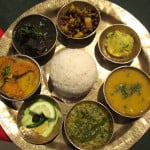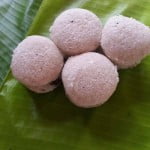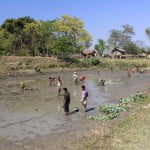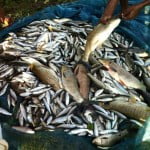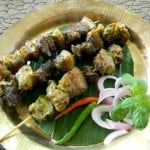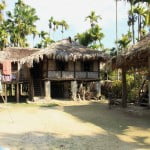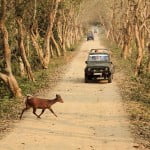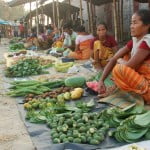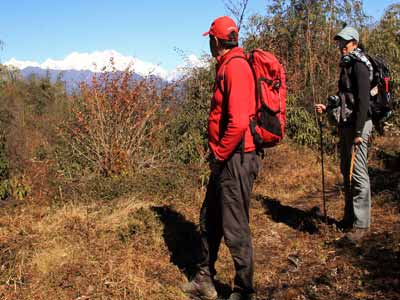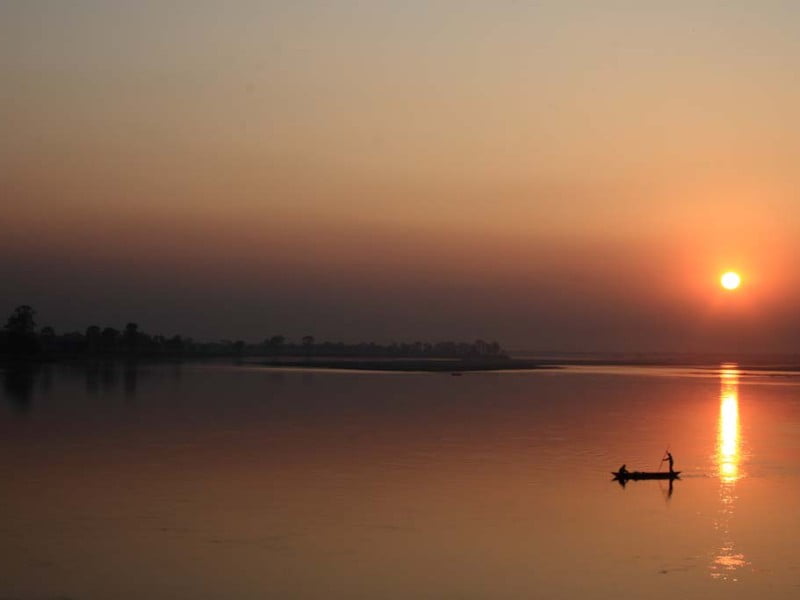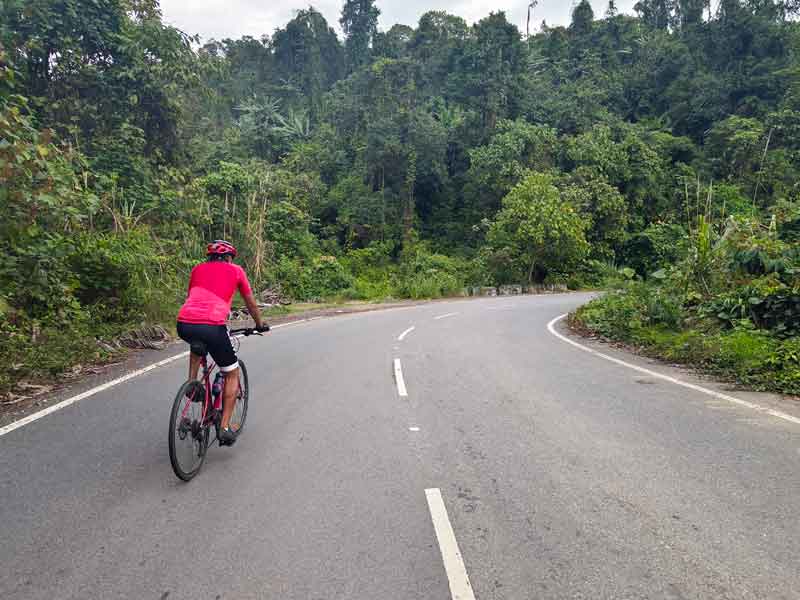Flavours of Assam
Catch the flavours of authentic Assamese cuisine as we travel to villages of three different tribes in our quest for gastronomic delights
Snapshot
- Dates: 22 Nov – 29 Nov 2025
- Region: Assam
- Duration: 8 days
- Activity: Food
- Grade: Easy
- Price: Rs. 60,000/- + 5% GST
Assam – at the very heart of North East India, holds many secrets for the seasoned traveler. The land of tea and one-horned rhinos is also home to about 25 different ethnic communities, each with their own histories, cultural heritage and traditions. It represents a microcosm of the diversity of Northeast India, and serves as the meeting point of South Asia and Southeast Asia. It holds a wealth of biodiversity.
This cultural diversity brings an interesting mix to Assamese cuisine, which draws influences from neighboring hill tribes and those residing in the Brahmaputra valley. The cuisine is a heady mix of fermentation and preservation, along with fresh ingredients, cooked in various styles like steaming, roasting and frying. Several natural methods are used in the cuisine as well as in its preparation styles.
The diversity of rice varieties, cultivated and consumed in umpteen number of ways, is pretty much a staple and the primary ingredient in Assamese cuisine. Fish, is a close second, playing a very significant role in many of their traditions. Throughout our trip we will be relishing various preparations of fish and rice, along with other poultry delicacies like duck and smoked meat, along with several vegetarian preparations. The methods of cooking have a wide range of diversity across the communities of Assam
- Visit local village markets to immerse in the diversity of local ingredients
- Relish cuisine of four different ethnic communities of Assam cooked in various ways steamed, roasted, fermented, and grilled
- Learn about traditional food knowledge of Indigenous communities
- Taste local brew made of rice, and get an understanding of its preparation methods
- Jeep safari in Kaziranga National Park
Day 1: Guwahati
Meet and greet at Guwahati airport from where we drive to the vibrant capital of Assam. In the afternoon we will visit some of the bustling fresh markets to get an idea of the diversity of grains and vegetables. Later in the evening we will have a session on the local cuisine of Assam followed by tasting session of a traditional Assamese meal, and what can be more fascinating than a locally prepared thali.
Day 2: Guwahati to Kaziranga
Today we continue our drive to Kaziranga, the land of the one-horned rhinos. Circumscribed by the mighty Brahmaputra towards the north and east, and by the Mora Diphlu in the south; the Kaziranga National park is home to the largest population of the Great One Horned Rhinoceros in the world. The habitat of this 400 sq. kms park encompasses vast expanse of tall elephant grass, marshland, and dense tropical moist broadleaf forests. The landscape consists of exposed sandbars, riverine flood-formed lakes known as, beels, and elevated regions known as, chaporis, which provide retreats and shelter for animals during floods.
In the afternoon we will go for a jeep safari in the Central range of the park characterized by grasslands and waterbodies known as beels. Over here we will be able to see herbivores like rhinos, hog deer, swamp deer and wild boars in the plentiful.
Day 3: Kaziranga
Today you will set out on an early morning trek towards the pristine Karbi Hills, which forms a part of the Kaziranga National Park’s highland ranges. The animals of the park use these hills as their routes of migration, from the hills to the plains and vice versa, especially the big herds of wild elephants.
We will walk upstream along the course of the Kohora river, crossing Karbi ethnic villages, and learning about their traditional customs and practices, including food, handloom and farming. You will have a traditional breakfast at the start of the forest trail before embarking on your journey inside the forest. After a morning prayer ritual to the forest by a traditional priest, which is to ask for entry to the forest and for overall wellbeing of humans, non-humans and other-than-humans, you will go for a forest trek. There will be a local naturalist guide who will provide you with insights about the forest produce that communities depend on. The naturalist will share mystical stories and tales from the forest, passed on across many generations, about streams, rivers, trees and spirits of the nature, that they worship, revere and learn to live with.
Lunch will also be a combination of local food with ingredients from the forest, and will be cooked in bamboo sleeves in the traditional Karbi way.
Day 4: Kaziranga to Majuli
After breakfast drive to Nimati ghat from where an hours ferry ride over the might Brahmaputra gets us to Majuli, one of the larges river island in the world. The name is a conjunction of Ma which denotes Laxmi (the godess of prosperity) and Juli meaning granary. The island has been the hub of Neo-Vaishnavite culture since the 15th century, having been initiated by the revered Assamese saint Sankardeva. Besides the Vaishanvites you also have many village of the Mishing and Deori community which present a great opportunity to experience the rural Assamese life.
Day 5: Majuli
The Mishing community have lived for generations on the banks of Brahmaputra, thus possessing a tremendous knowledge of fishing and wet paddy cultivation. We will visit a traditional Mishing village where we will learn to prepare some traditional dishes. The Mishing are also well know for their local brew made by burning rice husk, which is known as Sai Mod. You will also have to opportunity to visit local markets, and sample traditional cooking methods in an ethnic kitchen run by a local family.
Day 6: Majuli to Dibrugarh
We will driver to Dibrugarh on this day, the heart of the Ahom community. The Ahom originally came from Myanmar, bringing with them an interesting food culture which slowly got assimilated into that existing in the Brahmaputra valley. We will visit a Deori village en route to flavour their local delicacies.
By later afternoon continue driving to Dibrugarh.
Day 7: Excursion to Nam Phake
Drive to Nam Phake village on the banks of the Buri Dihingriver. The village is home to the Tai Phake community which originally came down from Northern Thailand via Myanmar sometime in the 16th century. They still maintain their distinctive culture and language, along with their food habits.
Start with a visit to the village monastery of the Theravada sect of Buddhism. From there continue walking around this serene village, interacting with the friendly locals. We visit one of the local houses where we have a traditional meal prepared with different kinds of vegetables and foraged greens, infused with local herbs. The vegetables are served with a ball of rice that is wrapped in a leaf and steamed, locally called Tupula Bhat. They are also known for the unique preparation of fish and pork that tastes as good as it looks- a true feast for the senses.
By evening drive back to Dibrugarh.
Day 8: Dibrugarh
After breakfast drop to Dibrugarh airport
Cost per person: Rs.60,000/- + 5% GST
Included
- Accommodation on a twin sharing basis
- All meals
- Transportation using a Tempo Traveler
- Jeep safari in Kaziranga National Park
Not Included
- Flights
- Camera fees in Kaziranga
- Excess stay & meals due to bad weather conditions or strikes, resulting in delay of flights or any other form of transport
- Soft drink charges, table drinks, bottled water, laundry, cigarettes, telephone expenses, and liquor charges
- Any other item not mentioned in “Included” section above
Submit your review | |


